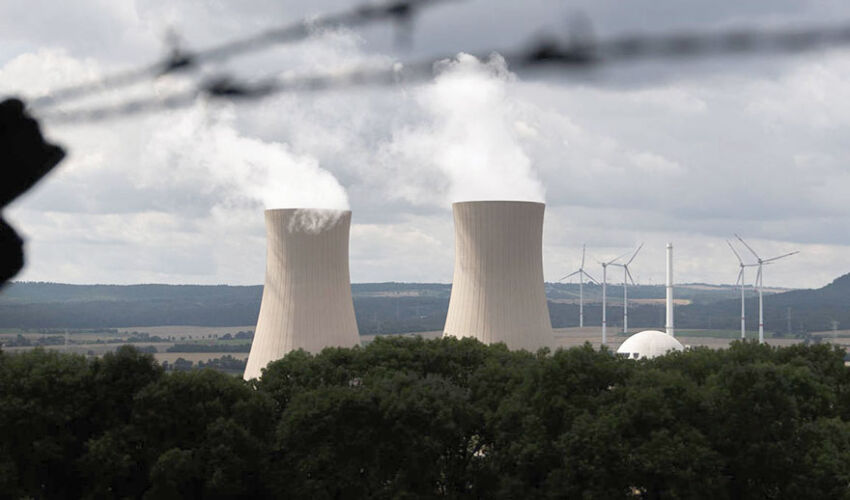
The consequences were immediate. In March 2025, for the first time in more than a decade, the U.S. intelligence community failed to mention climate change in its annual threat assessment. The White House ignored the congressionally required national climate assessment, which has been conducted every four years since 1990. Meanwhile, the U.S. Environmental Protection Agency is trying to refute the long-held scientific conclusion that greenhouse gases are harmful to human health. It is this conclusion that underlies U.S. regulation of greenhouse gas emissions.
The EU has made significant progress by increasing the share of renewable energy in its energy mix since the adoption of the European Climate Act in 2021. This law formalized the goals of the European Green Deal and set an interim target: to reduce greenhouse gas emissions by at least 55% by 2030. The decarbonization process was temporarily sidelined by Russia’s full-scale invasion of Ukraine in February 2022, when Europe had to hastily replace imports of liquefied natural gas (LNG) from Russia. Despite this challenge (or perhaps because of it), in 2024, almost 50% of the EU’s electricity was generated from renewables, with the share of gas falling (for the fifth year in a row) and solar overtaking coal power for the first time. Nuclear and wind power have become the leading sources of electricity in the EU.
The EU’s achievements are impressive. It has reduced its dependence not only on fossil fuels (which now account for only 29% of energy generation), but also on its belligerent neighbor: gas imports from Russia have fallen from 150 billion cubic meters in 2021 to less than 52 billion cubic meters in 2024. The problem is that Europe now risks becoming dependent on two partners whose reliability is increasingly questionable (the US and China).
The Biden and Trump administrations have been more than happy to make up for the shortfall in Russian gas supplies, with LNG imports to Europe from the US more than doubling from 18.9 billion cubic meters in 2021 to 45.1 billion cubic meters in 2024. But Trump has a clear disregard for America’s traditional allies (as illustrated by his capricious tariff policy), so the US administration may want to use the country’s energy resources as a weapon (much in the same way Russia does) to get its way, for example, in disputes over how to end the Ukrainian war or how many US-made weapons Europe should buy.
In addition, the EU’s push for decarbonization increases its dependence on China, which dominates the processing and supply of critical minerals needed for clean energy technologies. The Chinese government has repeatedly demonstrated its willingness (e.g., recently in response to U.S. duties) to restrict foreign access to critical minerals and rare earth elements to achieve its economic and foreign policy goals.
The recent Future of Energy Security summit, organized by the International Energy Agency and the UK, gave policymakers a chance to assess exactly how Europe might address its security and climate challenges against the backdrop of a changing geopolitical landscape. Despite the Trump administration’s attempts to withdraw support for the clean energy transition, summit organizers reiterated that renewable energy and energy storage technologies are critical to energy security.
Investments in fighter jets and missile systems are important for deterrence, limiting strategic threats. But in the near term, the EU should focus on developing defense mechanisms against a more pressing risk: influence and coercion in the energy sector (by Russia, China or the US) could stifle the Green Deal or even deprive the EU of its ability to take decisions independently. To avoid such scenarios, Europe should continue to invest in renewable energy (generation and grids), increase the recycling of critical minerals, and build up their reserves.
At a time when many in Europe are demanding that the EU choose between meeting climate commitments and investing in hard power for security, authorities should remember that promoting a clean energy transition (mainly in the form of further investment in renewable energy) will strengthen EU security. As the US abandons its claim to international climate leadership, the leadership role must be taken up by Europe. The world needs a convincing example of successful decarbonization to follow.
Greg Pollock
adjunct professor at Georgetown University’s School of Foreign Service, has served in senior positions in the Office of the U.S. Secretary of Defense, including principal director and acting deputy assistant secretary of defense for Arctic and Global Sustainability.
Joshua Busby
Professor of Public Affairs at the University of Texas at Austin, formerly Senior Climate Advisor at the U.S. Department of Defense.
© Project Syndicate, 2025.
www.project-syndicate.org

